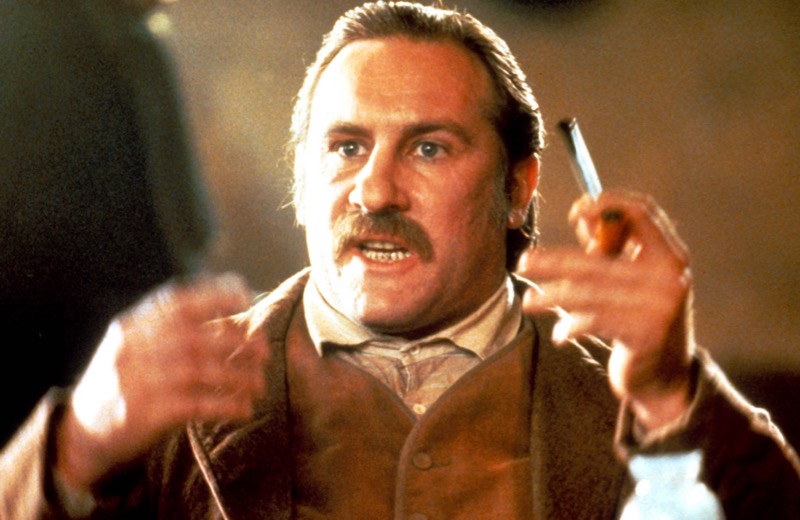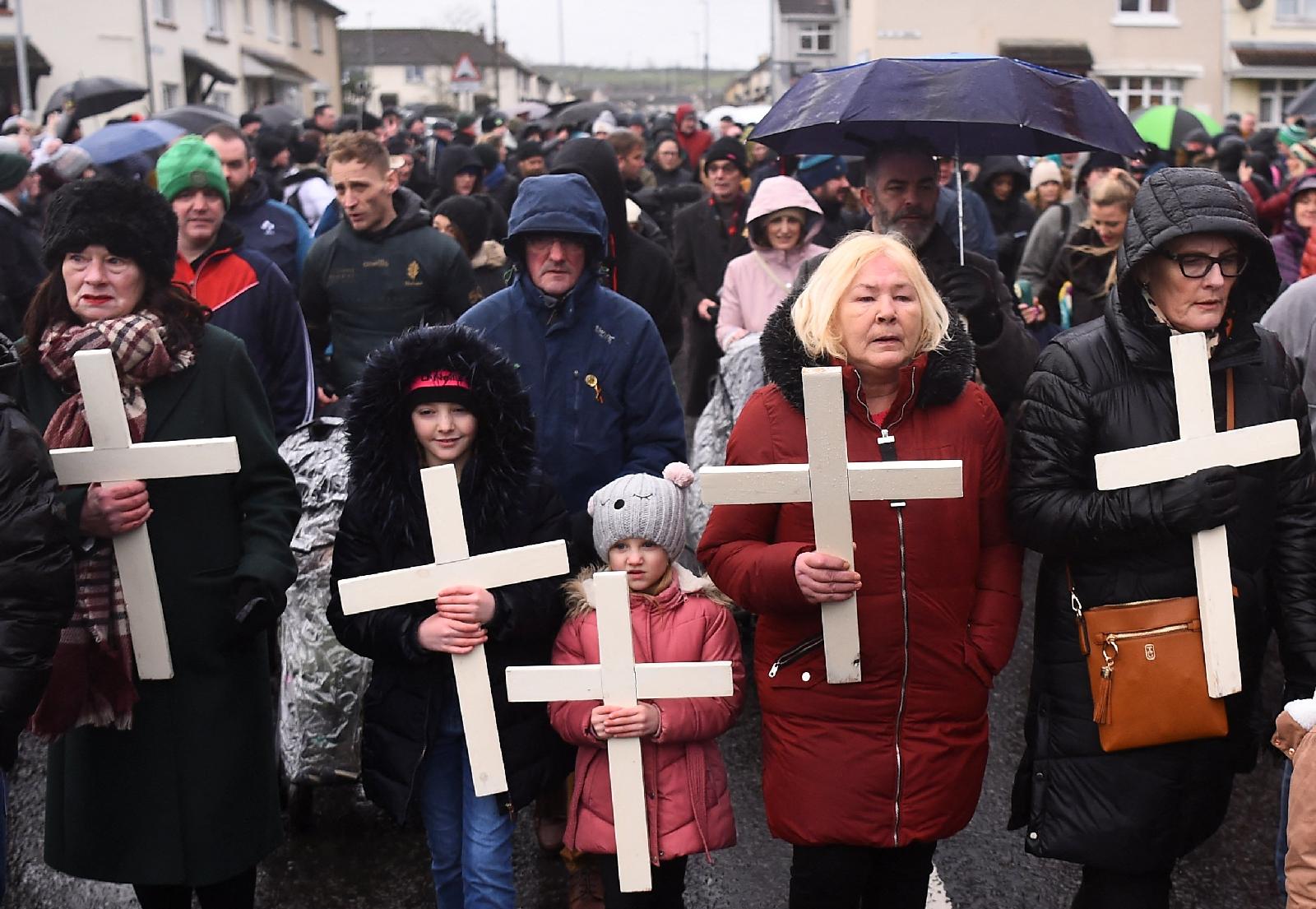Religious and political leaders, including the Taoiseach Micheál Martin, joined thousands of people to mark the 50th anniversary of the British Army’s killing of 14 unarmed civilians in the city on 30 January 1972. The atrocity became known as Bloody Sunday.
Speaking about the trauma, both Bishop Donal McKeown of Derry and Archbishop Eamon Martin of Armagh, a native of Derry, who was 10 when the massacre took place, criticised the British government’s proposal to end all legacy investigations.
In his homily at Mass in St Mary’s Church, Creggan, where the funerals of those killed took place 50 years ago, Bishop McKeown said: “Drawing a line under the past always suits those who have much to hide. Today we remember those whose lives were lost by brutal violence and all those who suffered terribly because of the lies that were told.”
In little more than ten minutes, a total of 26 unarmed civilians were shot, 14 of whom died including 6 who were under 18 years of age. It was, the Bishop of Derry said, “a trauma never to be forgotten”.
“Unarmed civilians were gunned down by the State when all they were doing was protesting against decades of injustice,” he said.
He said the Saville tribunal had overturned the initial Widgery report, widely regarded as whitewash, though it had taken 38 years for an acknowledgement of what the families always knew to be true.
Lord Saville concluded in his inquiry that the shooting and killing of innocent civilians, who had not posed any kind of threat was “unjustified and unjustifiable”. He found that the soldiers, as a justification for their actions, “knowingly put forward false accounts” about shooting only at armed targets.
Bishop McKeown said that had the truth been spoken at the time, “so many lives and so much pain could have been spared. But when truth is killed to protect the system, the initial pain is multiplied.”
Blatant lies were told and the system frustrated the desire of families to get at the truth. This had put huge pressure on mental health and on relationships.
“Institutions – whether state, church or non-state actors – tell stories of their own heroism. And that makes it very hard for them to admit the presence of sin in their ranks. People are crushed when institutions or organisations lie to preserve their reputation,” he said.
Bishop McKeown said there was still “much truth to discover” about many other deaths during the Troubles and many people still know truths that they are reluctant to share. “We deserve an agreed system that creates space for the truth to be told about the thousands of unsolved murders.”
Acknowledging that finding peace with the past is very difficult, he warned: “If all we do with the past is to use it as a heap of angry stones to throw at other people, then we cannot build.” A new society on the island needed big hearts and would not be created by small minds.
He paid tribute to Bishop Andrew Forster, the Church of Ireland Bishop of Derry and Raphoe, for attending the Mass, saying his presence built on the courageous work begun by Bishops Edward Daly and James Mehaffey some 40 years ago, who had “showed a way forward long before warring politicians would sit in the same room”. He said Bishop Forster’s presence “invites us to pray together and work for a bright brand-new day”.
At a Mass for Bloody Sunday in St Eugene’s Cathedral in Derry, Archbishop Eamon Martin said that even though he was only ten years old at the time of the atrocity, he had a sense of the “awful calumny” that followed.
“The pain of loss suffered by the Bloody Sunday families continued to be sharpened for many more years by blind eyes, deaf ears and the deliberate concealment of the truth.”
The Bloody Sunday families were denied for too long the truth about what happened to their loved ones and they were not alone, he said.
“A legacy of heartbreak, and with it, a dark shadow of secrecy, still hangs over much of our troubled past. Many families from right across our communities still endure the anguish of not knowing why, or how their loved ones were killed or injured or punished or targeted or disappeared or defamed or locked up, or interned or otherwise banished.”
The leader of the Irish Church said their unanswered questions linger on, as a constant nagging reminder to the next generation of unfinished business, and it was difficult for them to move on.
“It is hurtful, as some have proposed, to expect them to simply ‘draw a line’ under the past,” he said.



 Loading ...
Loading ...